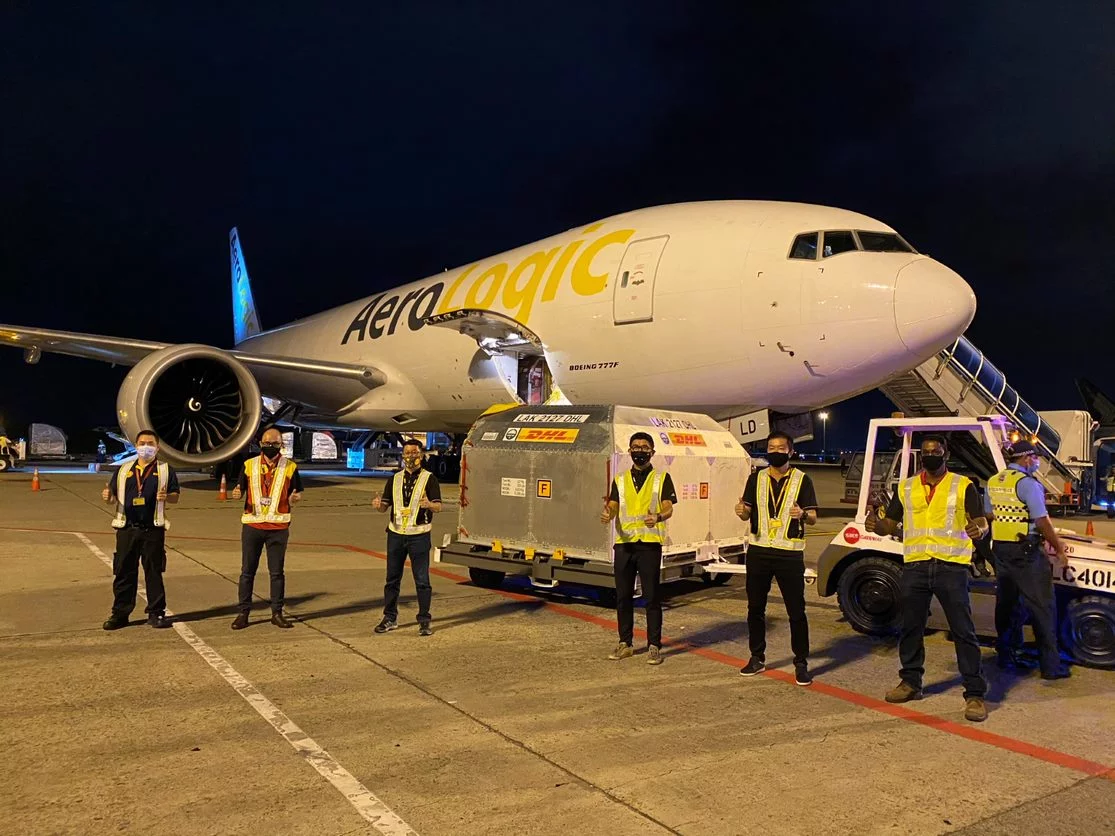Libiao Robotics, a supplier of automated warehouse storage systems and robotics, has opened a new office in Singapore. The Singapore HQ facility will henceforth act as headquarters for its overseas (i.e. non-China) business. The new office is situated in Perennial Business City in Jurong Lake District, the largest commercial district outside of Singapore’s city centre and dubbed ‘Singapore’s next central business district’.
Libiao’s new office was officially unveiled on 22nd May in a ceremony hosted by Libiao Robotics CEO and founder Xia Huiling and its CTO Zhu Jianqiang. The ceremony was attended by representatives from long-time Libiao Robotics investor Hidden Hill Capital as well as dignitaries from global investment manager GLP including Angela Zhao, China Co-President of GLP Asset II, and Jerry Cai, China Co-COO of GLP Asset. Also present were representatives from Singapore’s largest supermarket chain, Fairprice, which has deployed Libiao’s technology to good effect in its logistics operations.
A ceremonial ribbon-cutting ceremony marked the official opening, and a traditional lion dance was held to bestow good luck and fortune upon the new facility. Addressing the audience, Xia Huiling, said: “Our philosophy is to solve challenges by supplying essential mechanisms, and not to keep providing patches to stick over the problems. The way we do business is by encouraging our partners to work and innovate together. This is how we help our customers to reach their goals.”
Dong Zhonglang, Co-Founder and Managing Partner of Hill House Capital, added: “When I first saw the robots of Libiao Robotics back in 2016, I told everyone that this must be the future for warehouse automation, not only because they have a perfect design, but also because of their philosophy, which is to ‘make the world more efficient’.”
Technology That Helps Deliver Promises
Following the opening ceremony, a forum called ‘Opportunity in Changes’, hosted jointly by Libiao and GLP, described the landscape influencing modern global supply chains, and how advanced yet affordable technologies such as Libiao’s AirRob automated warehouse storage system can help retail and eCommerce businesses to better deliver the promises they make to their customers. Xiong Kaixin, VP of Commercial, GLP China described how being a signatory of the UN Principles for Responsible Investment (PRI) demonstrates a firm commitment to a broad range of ESG initiatives, as well as a commitment to investing in technology companies that accelerate global energy transition and carbon emission reduction.
Libiao’s robotic technology enables businesses to store and move goods in the most optimised and energy-efficient manner, helping to achieve considerable reductions in operational costs and carbon consumption. The location of the new office is therefore highly appropriate, as Perennial Business City is the first sustainable Super Low Energy business park in Jurong Lake District. Powered by renewable energy, and equipped with motion-sensors and LED lighting, the building holds a Singapore Building and Construction Authority (BCA) Green Mark Platinum certification.
similar news




